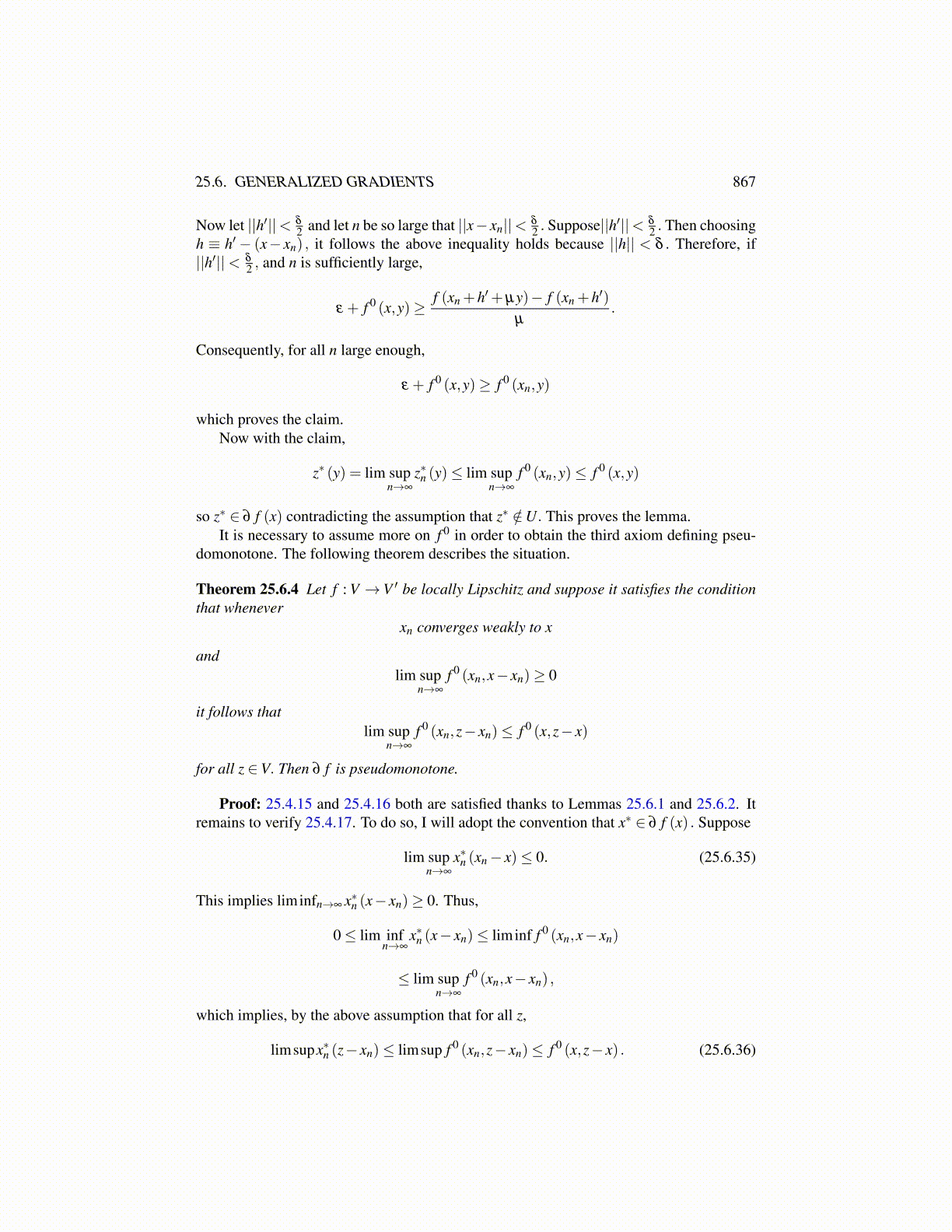
25.6. GENERALIZED GRADIENTS 867
Now let ||h′||< δ
2 and let n be so large that ||x− xn||< δ
2 . Suppose||h′||< δ
2 . Then choosingh ≡ h′ − (x− xn) , it follows the above inequality holds because ||h|| < δ . Therefore, if||h′||< δ
2 , and n is sufficiently large,
ε + f 0 (x,y)≥ f (xn +h′+µy)− f (xn +h′)µ
.
Consequently, for all n large enough,
ε + f 0 (x,y)≥ f 0 (xn,y)
which proves the claim.Now with the claim,
z∗ (y) = lim supn→∞
z∗n (y)≤ lim supn→∞
f 0 (xn,y)≤ f 0 (x,y)
so z∗ ∈ ∂ f (x) contradicting the assumption that z∗ /∈U. This proves the lemma.It is necessary to assume more on f 0 in order to obtain the third axiom defining pseu-
domonotone. The following theorem describes the situation.
Theorem 25.6.4 Let f : V →V ′ be locally Lipschitz and suppose it satisfies the conditionthat whenever
xn converges weakly to x
andlim sup
n→∞
f 0 (xn,x− xn)≥ 0
it follows thatlim sup
n→∞
f 0 (xn,z− xn)≤ f 0 (x,z− x)
for all z ∈V. Then ∂ f is pseudomonotone.
Proof: 25.4.15 and 25.4.16 both are satisfied thanks to Lemmas 25.6.1 and 25.6.2. Itremains to verify 25.4.17. To do so, I will adopt the convention that x∗ ∈ ∂ f (x) . Suppose
lim supn→∞
x∗n (xn− x)≤ 0. (25.6.35)
This implies liminfn→∞ x∗n (x− xn)≥ 0. Thus,
0≤ lim infn→∞
x∗n (x− xn)≤ liminf f 0 (xn,x− xn)
≤ lim supn→∞
f 0 (xn,x− xn) ,
which implies, by the above assumption that for all z,
limsupx∗n (z− xn)≤ limsup f 0 (xn,z− xn)≤ f 0 (x,z− x) . (25.6.36)